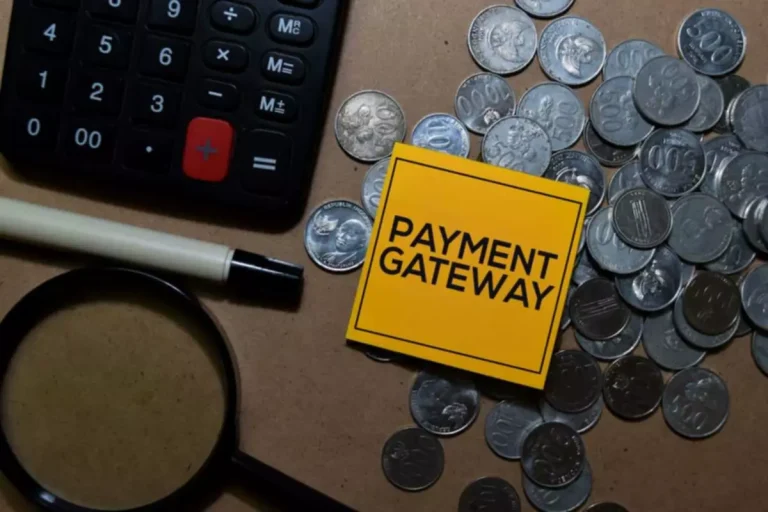Federal and state regulators will additional be required to handle BSA and sanctions compliance standards as a part of the more basic list of requirements affecting capital, liquidity, and threat administration that they should address in their respective stablecoin regulatory regimes. Treasury can also be tasked with adopting guidelines, tailored to the scale and complexity of permitted fee stablecoin issuers, to make sure the implementation of these requirements. In addition, the Financial https://www.xcritical.in/ Crimes Enforcement Community might be liable for issuing public steerage and guidelines regarding, among other things, the monitoring, identification, and reporting of illicit exercise and obfuscation efforts involving stablecoins. The enactment of the GENIUS Act into federal law presents financial establishments with a selection of alternatives to enter the digital asset area or increase their engagement on this market.
Since AML compliance mandates crypto exchanges to conduct ID verification checks, which might require extra checks like uploading paperwork for address verification or reverification purposes, it’s turn out to be normal follow. Nonetheless, some crypto users fear that such measures can lengthen transaction occasions and, naturally, decrease anonymity. In Accordance to Chainalysis’ report, criminals laundered $8.6 billion in cryptocurrency in 2021, marking a 30% enhance from the previous 12 months. A large portion of this huge quantity consisted of various crypto transfers being funneled right into a small variety of services — all for money laundering purposes. For instance, when a consumer sends $5,000 worth of cryptocurrency, the change must transmit the user’s private information—such as name, handle, and pockets details—to the receiving trade.
Last Thoughts For Constructing A Trustworthy Aml Crypto Future

It requires monetary institutions to gather and transmit personal information about the originator and beneficiary of a transaction. The FATF extended this rule to incorporate cryptocurrency exchanges, requiring them to gather identifying data for transactions above a sure threshold (usually $1,000 or more). The evolution of know-how, similar to blockchain analytics and synthetic intelligence, can doubtlessly revolutionize AML companies in the crypto trade. These technologies offer enhanced transaction monitoring, improved danger evaluation, and more practical detection of suspicious activities.
How Usually Do Regulators Update Crypto Aml Guidance?
Despite regulatory uncertainty, India is exploring structured regulations, with initiatives just like the Telangana Web3 Sandbox indicating potential future developments. The business must navigate these evolving guidelines amid cautious however progressive governmental attitudes. They might need to report detailed transaction data to the IRS using a new type, Kind 1099-DA, designed to simplify reporting cryptocurrency gains and losses.

How Does Aml Apply To Crypto?
From DeFi protocols to NFT collectives, these blockchain-based entities are reshaping finance, possession, and decision-making across the crypto world. Blackmail within the crypto world usually occurs when scammers obtain sensitive data or pictures a couple of sufferer and threaten to reveal them until the victim pays a ransom in Bitcoin or another digital forex. Scammers submit pictures of real celebrities on pretend accounts or in advertisements to create the impression that the superstar is making a big return on investment. These DAOs are usually registered as ownerless legal entities like foundations, and the entity is also identified as Initial exchange offering DAO Authorized Wrapper. These legal wrappers goal to protect DAO members from limitless liability and implement the decentralized governance of the DAO.

The actions of permitted cost stablecoin issuers typically might be limited to the issuance, redemption, and administration of, and offering of custodial or safekeeping providers for, fee stablecoins. The ability of nonbanks to problem stablecoins is notable; cost stablecoins bear similarities to banking merchandise, and there’s a historically robust barrier in U.S. legislation between banking and commerce. To successfully display screen prospects, crypto exchanges want access to authoritative databases and issuing sources across numerous countries. By using advanced screening instruments, exchanges can automate the screening process and effectively establish customers who may pose a danger. This helps prevent the onboarding of people or entities concerned in illicit actions whereas complying with AML legal guidelines. To achieve AML compliance, crypto exchanges ought to adopt a risk-based method, continuously assess and mitigate risks, and collaborate with regulatory bodies.
The expertise helped the platform pre-emptively determine and mitigate synthetic id fraud before it triggered exterior alerts, setting a precedent for predictive compliance instruments. The Financial Crimes Enforcement Network (FinCEN) requires crypto corporations registered as Money Services Businesses (MSBs) to take care of AML compliance programmes. FATF’s “journey rule” requires VASPs to collect and transmit private data of both the sender and recipient for transfers over €1,000 or US$1,000. In response, the UAE undertook sweeping reforms to enhance regulatory enforcement and regain worldwide credibility.
By implementing strict CDD and KYC processes, exchanges can gather crucial details about their clients, including their identities, supply of funds, and transaction patterns. With the rising variety of KYC/AML tools on the market, choosing the right one on your AML Crypto crypto enterprise can be challenging. Your software must be capable of automating key compliance processes similar to buyer due diligence, transaction monitoring, and suspicious activity reporting whereas guaranteeing adherence to local and international AML laws. Though cryptocurrencies present a reliable monetary asset class, they’re often misused for cash laundering. The cryptocurrency market provides criminals the chance to obscure the source of their illicit funds, facilitating organized crime, drug trafficking, terrorism financing, and other forms of financial crime.
In AML/KYC, it helps trace transactions, verify identities, and detect suspicious activity via transparency and immutability. FATF has additionally raised considerations about stablecoins and DeFi platforms, calling for improved worldwide cooperation and regulatory enforcement. For virtual asset companies operating globally, this complexity calls for not only legal consciousness but operational agility, making certain compliance with overlapping frameworks with out compromising the decentralised foundations of the expertise. It requires knowing when laws and regulations apply and understanding how they need to be carried out. By developing all the right policies at the outset, your small business can set up a tradition of compliance and concentrate on profit-generating activities.
Implementing customer due diligence procedures, transaction monitoring systems, and robust inside controls are important to mitigate cash laundering risks. For occasion, some jurisdictions require companies to obtain licenses or register with regulatory authorities, whereas others depend on self-regulation or industry finest practices. Variations in reporting obligations, thresholds for suspicious transactions, and buyer due diligence procedures additional complicate compliance efforts. Unlike conventional banking, crypto payment systems supply anonymity, making them attractive to cash launderers. Consequently, AML measures within the crypto market goal to boost transparency and monitor transactions to detect and stop money laundering and different illegal activities.
- Regulatory bodies, such because the Monetary Action Task Drive (FATF), play a vital role in creating AML regulations for the crypto business, making certain consistency and coherence across different jurisdictions.
- The aim of this AML compliance requirement is to help crypto corporations set up safer enterprise relationships and decide whether or not to simply accept or deny the transaction.
- The outcomes of this research are to be revealed not later than three years after the date of enactment of the GENIUS Act.
- They focus more on compliance with AML and data assortment requirements somewhat than direct oversight by organizations like the SEC.
- Finally, it seems that agency rulemaking will play a significant role within the stablecoin regulatory panorama in the coming months and years, and we expect affected events will seek to make their voices heard through rulemaking and congressional oversight.
The Monetary Action Task Force (FATF) plays a big function in setting global standards to forestall the misuse of virtual belongings. The updated FATF Suggestions now require Digital Asset Service Suppliers (VASPs) and monetary institutions engaged in virtual asset transfers to observe the Journey Rule. This rule mandates amassing and sharing personal knowledge of senders and recipients in a transaction, with a proposed threshold of $1000 for digital asset transfers. While many jurisdictions have begun passing Journey Rule laws, implementation challenges have been famous globally. In the next sections, we’ll explore the precise AML compliance measures that crypto exchanges can undertake to meet regulatory obligations and tackle the unique challenges they face in combating monetary crimes. Customer Due Diligence (CDD) and Know Your Customer (KYC) procedures function the inspiration for efficient AML policies in crypto exchanges.
